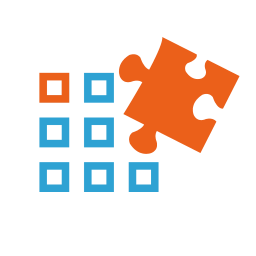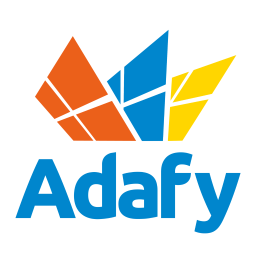weikio / Pluginframework
Projects that are alternatives of or similar to Pluginframework

Plugin Framework for .NET Core 
With Plugin Framework for .NET Core, everything is a plugin! Plugin Framework is a plugin platform for .NET Core applications, including ASP.NET Core, Blazor, WPF, Windows Forms and Console apps. It is light-weight and easy to integrate and supports multiple different plugin catalogs, including .NET assemblies, Nuget packages and Roslyn scripts.
Main Features
Here are some of the main features of Plugin Framework:
- Everything is a plugin! Deliver plugins as Nuget-packages, .NET assemblies, Roslyn scripts and more.
- Easy integration into a new or an existing .NET Core application.
- Automatic dependency management.
- MIT-licensed, commercial support available.
Quickstart: Plugin Framework & ASP.NET Core
Plugin Framework is available from Nuget as a .NET Core 3.1 package. There's a separate package which makes it easier to work with plugins in an ASP.NET Core app:
Install-Package Weikio.PluginFramework.AspNetCore
Using Plugin Framework can be as easy as adding a single new line into ConfigureServices:
services.AddPluginFramework<IOperator>(@".\myplugins");
The code finds all the plugins (types that implement the custom IOperator-interface) from the myplugins-folder. The plugins can be used in a controller using constructor injection:
public CalculatorController(IEnumerable<IOperator> operator)
{
_operators = operators;
}
Alternatively, you can provide multiple plugin locations using catalogs:
var folderPluginCatalog = new FolderPluginCatalog(@".\myplugins", type =>
{
type.Implements<IOperator>();
});
var anotherPluginCatalog = new FolderPluginCatalog(@".\morePlugins", type =>
{
type.Implements<IOperator>();
});
services.AddPluginFramework()
.AddPluginCatalog(folderPluginCatalog)
.AddPluginCatalog(anotherPluginCatalog)
.AddPluginType<IOperator>();
Samples
The following Plugin Framework samples are available from GitHub:
Plugin Framework & .NET Console Application
Plugin Framework & ASP.NET Core
Plugin Framework & Blazor
Plugin Framework & WPF App
Plugin Framework & WinForms App
Nuget & Plugin Framework & ASP.NET Core
Roslyn & Plugin Framework & ASP.NET Core
Delegates & Plugin Framework & ASP.NET Core
Tagging & WinForms App
AppSettings.json & ASP.NET Core
Background and introduction
For more details related to Plugin Framework's background, please see the following introduction article from InfoQ.
Main concepts
Using Plugin Framework concentrates around two concepts: Plugins and Plugin Catalogs.
Plugin
Plugins are software programs, which provide extensions to an application. Plugins are designed to work with a single application. This app is often called the host application. The host application is designed in such a way that it can locate and run plugins dynamically, runtime. The application works without the plugins, the plugins can't work without the host application.
The host application defines the specifications for the plugins. In some applications a plugin can add new functionality into the UI. In other apps, plugins are used to distribute logs into multiple different systems. The host application defines what kind of extensions it supports.
Plugin-based software architecture can help in the following scenarios:
- Adding new features to application after the release
- Splitting large systems into smaller parts
- Updating always-on software system without restarting it
Plugins are dynamic, and they are often only loaded when the application needs them. Plugins are not usually compiled as part of the system but distributed as separate packages (assemblies, Nuget packages).
In the context of the Plugin Framework, plugin is a single .NET Type. What makes a plugin? As described previously, it depends on the host application. For some applications a plugin is a type which implements a specific interface. In some applications a plugin is a type which has a single public method called Run. Attributes are often used to indicate the plugins and that is also supported by Plugin Framework. From the Plugin Framework's point of view anything or everything can be a plugin.
As mentioned, in Plugin Framework a single plugin is a .NET Type. Even though Plugin Framework's ASP.NET Core support makes it easy to instantiate and use plugins in services and controllers through dependency injection (IServiceProvider), Plugin Framework itself doesn't provide any built-in mechanisms for creating instances (objects) from the plugins (types). In some cases Activator.CreateInstance is all that is needed and in some cases it is best to hook Plugin Framework with the app's DI-system. The requirements are host application specific.
In Plugin Framework, each Plugin is composed of the following information:
- Type
- Plugin name
- Plugin version
Plugin Catalogs
Plugin Framework contains a concept called "Catalog". A single assembly can be a catalog. A .NET type can be a catalog. Folders with dlls are often used as catalogs and Plugin Framework also supports Nuget packages, Nuget feeds and Roslyn scripts as Plugin catalogs. Multiple catalogs are often combined into a single Composite catalog.
Each catalog contains 0-n plugins.
Plugin Framework provides the following officially supported catalogs:
- Type
- Assembly
- Folder
- Delegate (Action or a Func) (Documentation)
- Roslyn script (Nuget: Weikio.PluginFramework.Catalogs.Roslyn, Documentation)
- Nuget package (Nuget: Weikio.PluginFramework.Catalogs.Nuget)
- Nuget feed (Nuget: Weikio.PluginFramework.Catalogs.Nuget)
Source code
Source code for Plugin Framework is available from GitHub.
Constributors
@panoukos41
Support
Commercial support for Plugin Framework is provided by Adafy.
Adafy is a Finnish software development house, focusing on Microsoft technologies.
License
Plugin Framework is available as an open source, MIT-licensed project.


